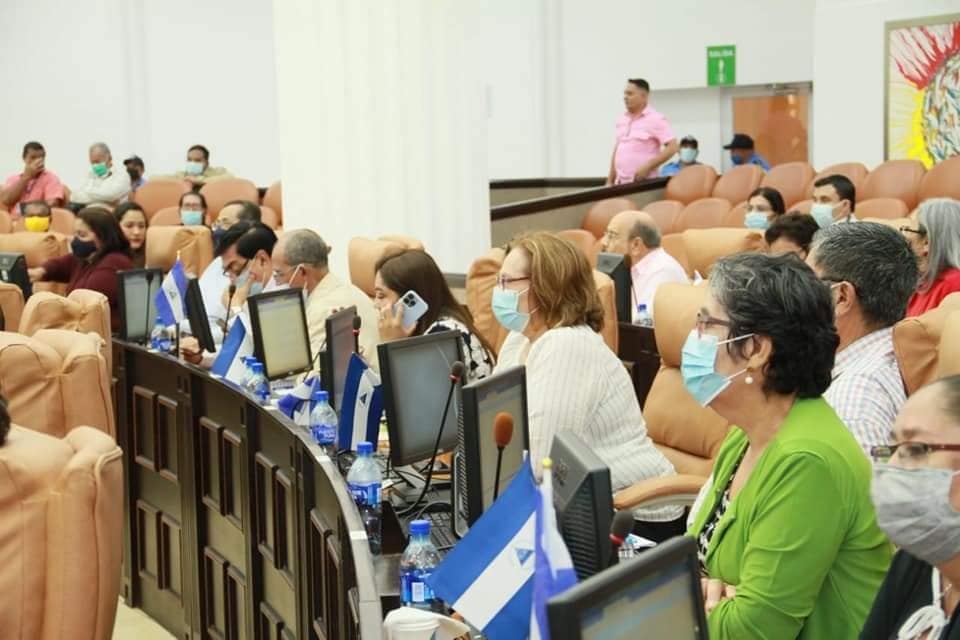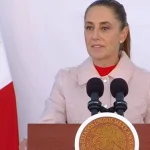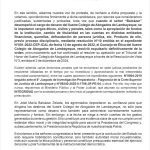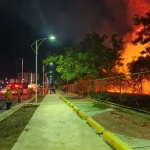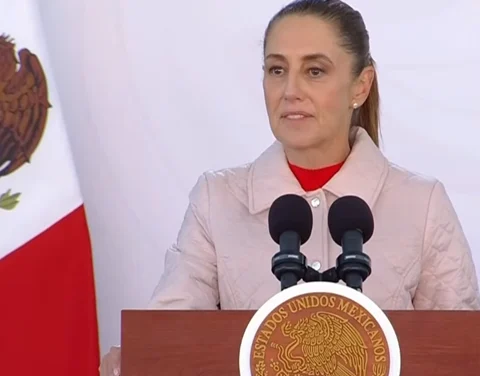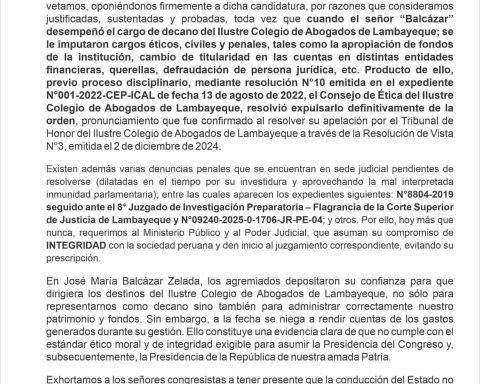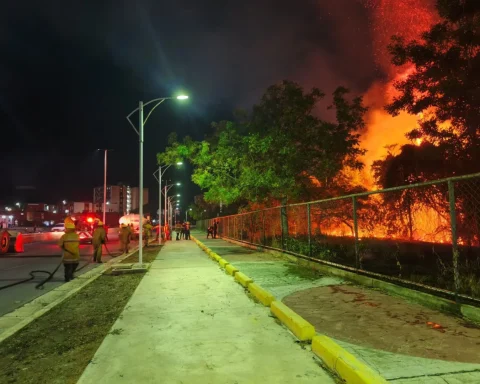Reforms and additions to the Law of Notaries and the Code of Commerceor, approved this March 29 to control who are those involved in all operations of “purchase, exchange and donation” of goods and properties in Nicaragua, in addition to those related to the “management of money, administration of bank accounts and creation of people legal”, they lack legal arguments, according to lawyers who shared with CONFIDENTIAL his analysis of these reforms.
The adjustments will allow the judicial system to require lawyers and notaries to report who are the “final beneficiaries” of the operations described.
Two legal professionals, who requested to remain anonymous to avoid retaliation by the regime through the Supreme Court of Justice (CSJ), recognize the importance of strengthening the prevention of money laundering, but warn that the Government used this need to strengthen the combo of repressive laws that it uses against the population that opposes them.
One of the lawyers consulted said that “to interpret these reforms in their correct dimension, it must be done as part of a swarm of eminently repressive laws that have been issued systematically for the last three years, to increase political and economic control. , increase judicialization with new penal and administrative sanctions, and indiscriminate repression; in addition to suppressing fundamental freedoms such as the press, expression, mobilization and organization.”
His analysis indicates that its direct recipient is the population in general, “with a special dedication to NGOs, the financial sector, political leaders and movements, and businessmen. The common factor of the sanctions points to the dissolution of institutions, imprisonment, civil death and protection of government accomplices. Without exception, this legislative swarm, whose links are harmonized around specific political goals, is unprecedented in our recent history, and is in violation of the Political Constitution”, he stated.
For her part, a lawyer who knows the legal system issued in the last three years to criminalize dissent, considered that “the danger is not the reform that is being carried out, because its regulatory framework is partly adjusted to the standards of the International Financial Action Task Force (FATF)”.
“Where I do see substantial danger, is that this regulatory framework, like others that have been created recently, such as Law 977 itself, the Law Against Money Laundering, is instrumentalized to criminalize clients, and the lawyers and notaries themselves, involving them in the crime of money laundering,” he added.
The lawyer insisted on the danger of using this combo of laws as an instrument to “focus repressive actions against certain lawyers and public notaries, especially those who are dedicated to the defense of Human Rights, or work with organizations, or are available to defend political prisoners, or people who are being repressed in the country, and exercise the function of lawyers and public notaries”.
The FATF excuse
When trying to justify the changes made to both laws, the pro-government deputy –and also a lawyer– Wálmaro Gutiérrez, said that “we must guarantee that notarial public faith is well used and does not become a tool for committing crimes…. Whoever wants to say the opposite is playing the game of drug activity, organized crime and money laundering. We have commitments to regulate the performance of the notary public as an obligated subject in the framework of the fight against drug activity and organized crime”.
His speech is based on the need for Nicaragua to comply with recommendations number 22 and number 23 of the FATF, an entity that placed the country on the “Grey List” of nations that do not do enough to combat this type of financial crime.
These recommendations establish that countries in the situation of Nicaragua must incorporate, within their legal frameworks, regulations for obligated subjects, such as public accountants, lawyers and notaries, but these were already incorporated in the reform of Law 977, approved in 2019, where they were incorporated as regulated entities, which establishes a series of duties in terms of prevention and detection of money laundering.
“Since that date, lawyers and public notaries have been having obligations in terms of money laundering prevention, because the Supreme Court, which is our regulator in the exercise of our profession, but also in terms of prevention, created the General Directorate of Information and Prevention, which began to issue regulations, resolutions, circulars, where it established what our obligations were in a more precise way, ”explained the lawyer.
The also pro-government deputy –and lawyer– Edwin Castro, said in the chamber that “we have obligations as notaries public. It is not the client who pays me… for whom I must attest publicly. It is for the people of Nicaragua,” he exclaimed.
The lawyer cited above agreed that “in terms of preventing money laundering… the public interest must prevail. In this case, it must be to avoid possible money laundering situations that arise when we serve clients, and unfortunately, confidentiality is sacrificed to avoid this type of situation.”
The source insisted on the danger that “a legal framework that apparently may be adjusted within the standard of the FATF recommendations, could be exploited, which is an implementation problem. It is not a problem of the norm, but of how this normative framework can be used to distort the facts, and say that certain lawyers and notaries are involved in illicit activities”.
